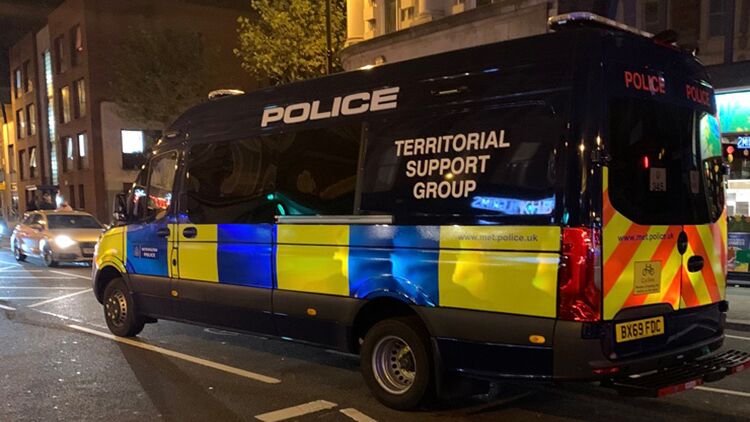
“The Black community are over-policed as citizens and under policed as victims,” says Emmanuel Onapa, campaigns manager at Hackney Account – and they have the research to prove it.
They are a youth-led research team, starting as a young people’s stop and search monitoring group back in 2012. The group have since expanded their role into the community, researching topics related to policing and community safety.
The group are committed to developing a deeper understanding within their community by carrying out research and workshops on issues such as trust in police, deaths in custody, the education system and youth violence. And they say: “Evidence is a powerful tool that should not only be wielded by those in power.”
Their aim is to build research skills in young people and arm them with evidence, be able to hold power to account and stop discriminatory policing in the black community and create longstanding change.
Spear-heading the way is the release of their new report: ‘Policing in Hackney: Challenges from youth in 2020,’ which shines a light on a series of issues facing young people in the borough.
The report is a product of a years’ long investigation composed of interviews and research by young people at the heart of the community, trained and put on the ground to tell the real story.
Onapa said it’s vital this research is done by the people it affects.
He told Eastlondonlines: “If you want to motivate and empower those who are already marginalised, the people that are coming to do the research need to look like them, need to speak like them and need to represent them.”
“When young people from the community come into the community to do the research – people know they are truly fighting for their lives and their human rights.”
After collecting and collating the data, the group focused their report around the criminal justice system specifically policing and highlighted three main challenges young black people in Hackney face: trauma, trust and accountability.
The report relays that in Hackney last year 10,872 stop and searches were carried out and 5,851 of those were on black people. The Hackney council websites suggests black people make up approximately 20% of the population.
For black men (aged 15 -19) there were 768 searches per 1000 of the population and 136 per 1000 population for their white counterparts.
Onapa said: “When we look at Government state institutions, for young black men the first point of contact is generally negative contact with the police. We have young black men that are being searched at the age of 12, 13, 14, 15 and that’s traumatic.”
“We also found that the positive outcome rate for white males and black males is very disproportionate. The positive outcome rate is the outcome of the police finding something legitimate for them to make an arrest, let’s say if they are looking for a knife… they would log that as a positive outcome if they found one. I know for black people the rate is 17% and the Metropolitan police aim for it to be around 30% so this shows how ineffective it is.”
Trust and accountability are two other major concerns highlighted by the report.
Onapa said: “If you are experiencing something that your white counterparts are not it makes you think, hold on I’m in a British society and these are British police that are searching me and treating me wrongfully, where is my identity?”
One event which hits home for the Hackney community and Onapa himself is the killing of community member Rashan Charles, who died as a result of police restraint. “It was a tragedy the Hackney community had to face and it still hasn’t been addressed.
“In the report, we address the lack of trust the community of young black people has for the police, we address the accountability,” said Onapa. “The police are not accountable to anybody because the Independent office of police complaints, almost always bring out verdicts that are in favour of the police”.
“As we wake up every day to brush our teeth, to get in the shower – we should make it our due diligence to know our rights. The first thing I would say is know your rights, and the second thing is fund youth-led movements because they are the backbone of justice historically.”
The Hackney Account says it is their job to ensure the police are held to account where they feel other institutions have let them down.
You can read the full report here




